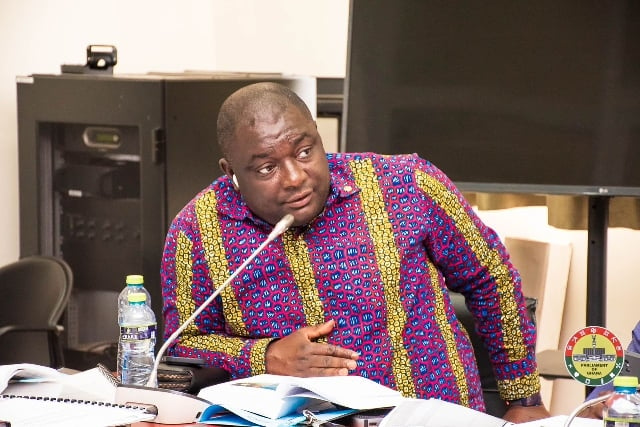Ghana’s parliamentary system is facing a looming crisis, driven by an alarmingly high attrition rate among its Members of Parliament (MPs). This worrisome trend, as highlighted by Mpraeso Constituency MP Davis Ansah Opoku, threatens the very foundation of Ghana’s democratic governance by eroding institutional memory, hindering effective legislation, and undermining the stability of the parliament. The stark reality of this issue is evident in the dwindling number of returning MPs, with only a small fraction retaining their seats across successive parliaments. This constant turnover disrupts the continuity of legislative processes, impedes the accumulation of valuable experience, and weakens the parliament’s ability to effectively scrutinize government policies and actions.
The primary drivers of this high attrition rate are multifaceted, encompassing financial, political, and societal factors. The exorbitant cost of campaigning for parliamentary seats creates a significant barrier to entry for potential candidates, particularly those without access to substantial financial resources. This financial burden often forces MPs to engage in questionable fundraising practices, potentially compromising their integrity and leading to disillusionment among voters. Furthermore, the weak enforcement of the Political Parties Act exacerbates the problem by allowing for unregulated campaign financing and internal party conflicts. The highly competitive and often divisive nature of primary elections within political parties further contributes to the attrition rate, creating internal rifts and discouraging long-term political careers. Finally, unrealistic public expectations placed upon MPs, who are often seen as providers of social services rather than legislators, add another layer of complexity to the issue. These heightened expectations, coupled with limited resources and a challenging political landscape, contribute to burnout and discourage MPs from seeking re-election.
Addressing this critical issue requires a comprehensive and multi-pronged approach that tackles the root causes of the high attrition rate. A crucial step is the implementation of public funding for political parties. This would level the playing field for candidates, reducing the reliance on private donations and minimizing the potential for corruption. Stricter enforcement of existing laws, such as the Political Parties Act, is equally vital to ensure transparency and accountability in campaign financing. This includes enhanced financial disclosure requirements for candidates and parties, coupled with robust monitoring mechanisms to deter illicit financial activities.
Reforming the candidate selection process is another essential component of addressing the attrition problem. Promoting more inclusive and transparent internal party democracy would encourage greater participation and reduce the potential for divisive primaries. This could involve establishing clear guidelines for candidate selection, ensuring fair representation of various groups within the party, and implementing mechanisms for resolving internal disputes. Furthermore, educating the public about the roles and responsibilities of MPs is crucial to managing expectations and fostering a more realistic understanding of their legislative function. This public education campaign should emphasize the importance of policymaking and oversight, rather than focusing solely on the provision of individual favors or social services.
Beyond these specific reforms, fostering a more conducive political environment is essential for retaining experienced MPs. This includes promoting a culture of respect and dialogue within parliament, reducing partisan polarization, and encouraging constructive engagement between the government and the opposition. Creating a more supportive and less adversarial political climate can encourage long-term political careers and incentivize experienced MPs to continue serving. This also requires enhancing the capacity of parliament to effectively perform its legislative and oversight functions. Providing MPs with adequate resources, research support, and professional development opportunities will enhance their ability to contribute meaningfully to the legislative process and increase their job satisfaction.
Ultimately, the stability and effectiveness of Ghana’s democracy depend on a strong and experienced parliament. Ignoring the escalating attrition rate and failing to implement necessary reforms will have severe consequences for the country’s governance. The high turnover of MPs undermines the institutional memory of parliament, hindering its ability to learn from past experiences and develop effective policies. It also weakens the parliament’s capacity to scrutinize government actions, hold the executive accountable, and ensure that public resources are used responsibly. Therefore, addressing this pressing issue is not just a matter of improving the efficiency of parliament, but a fundamental requirement for safeguarding the future of Ghana’s democratic governance. The proposed reforms, along with a concerted effort to create a more conducive political environment, are crucial steps towards ensuring a stable, experienced, and effective parliament capable of fulfilling its constitutional mandate and serving the best interests of the Ghanaian people.














